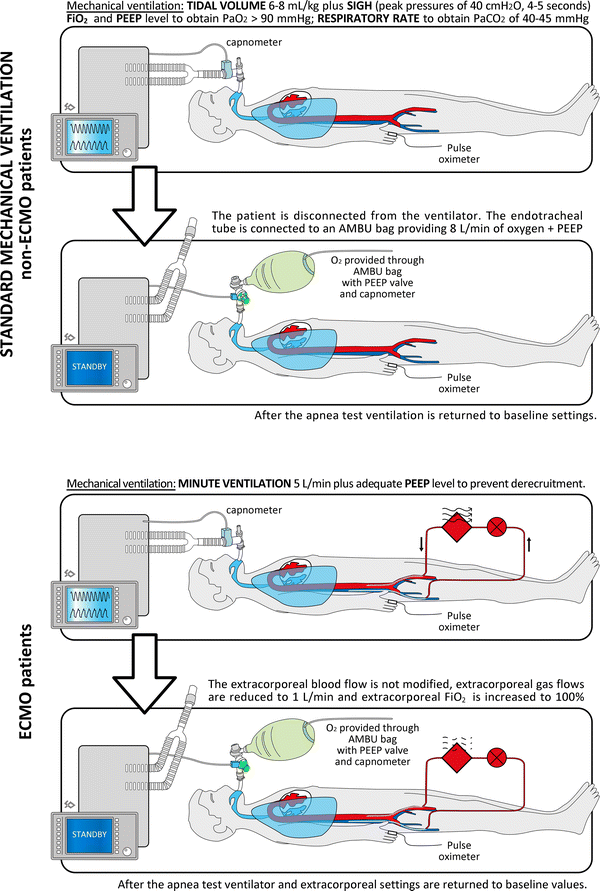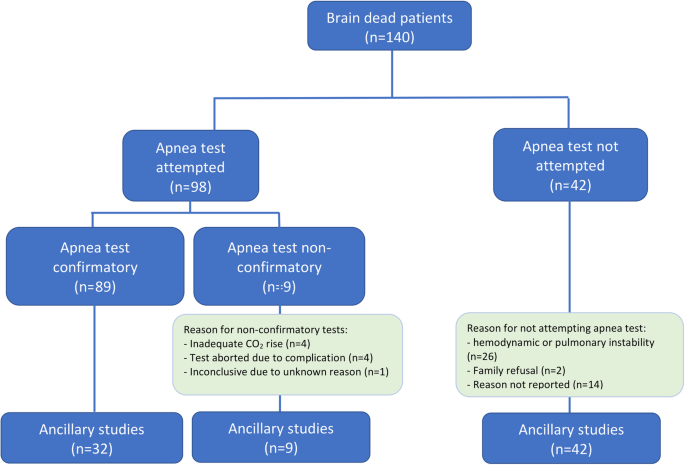Apnea Testing During Brain Death Assessment: A Review of Clinical Practice and Published Literature
Por um escritor misterioso
Descrição
The diagnosis of brain death is a complex process. Strong knowledge of neurophysiology and an understanding of brain death etiology must be used to confidently determine brain death. The key findings in brain death are unresponsiveness, and absence of brainstem reflexes in the setting of a devastating neurological injury. These findings are coupled with a series of confirmatory tests, and the diagnosis of brain death is established based on consensus recommendations. The drive to breathe in the setting of an intense ventilatory stimulus (ie, respiratory acidosis) is a critical marker of brainstem function. As a consequence, apnea testing is an important component of brain death assessment. This procedure requires close monitoring of a patient as all ventilator support is temporarily removed and Paco2 levels are allowed to rise. A “positive” test is defined by a total absence of respiratory efforts under these conditions. While apnea testing is not new, it still lacks consensus standardization regarding the actual procedure, monitored parameters, and evidence-based safety measures that may be used to prevent complications. The purpose of this report is to provide an overview of apnea testing and discuss issues related to the administration and safety of the procedure.

Prolonged duration of apnea test during brain death examination in a case of intraparenchymal hemorrhage - Premkumar Nattanmai, Christopher R Newey, Ishpreet Singh, Keerthivaas Premkumar, 2017

PDF] Apnea Testing During Brain Death Assessment: A Review of Clinical Practice and Published Literature
Brain Death - EMCrit Project

Potential Threats and Impediments to the Clinical Practice of Brain Death Determination

Apnea test during brain death assessment in mechanically ventilated and ECMO patients

The effect of incorporating an arterial pH target during apnea test for brain death determination, Journal of Intensive Care

PDF) Carbogen: A Safe and Effective Method for Apnea Testing to Declare Brain Death

The apnea test in brain death determination using oxygen diffusion method remains safe

PDF) Apnea Test Safety in Brain Death: A Single-Center Retrospective Cohort Analysis

Confirmation of brain death using optical methods based on tracking of an optical contrast agent: assessment of diagnostic feasibility

PDF] Apnea Testing During Brain Death Assessment: A Review of Clinical Practice and Published Literature

Table 1 from Problems associated with the apnea test in the diagnosis of brain death.

PDF] Apnea Testing During Brain Death Assessment: A Review of Clinical Practice and Published Literature
de
por adulto (o preço varia de acordo com o tamanho do grupo)






